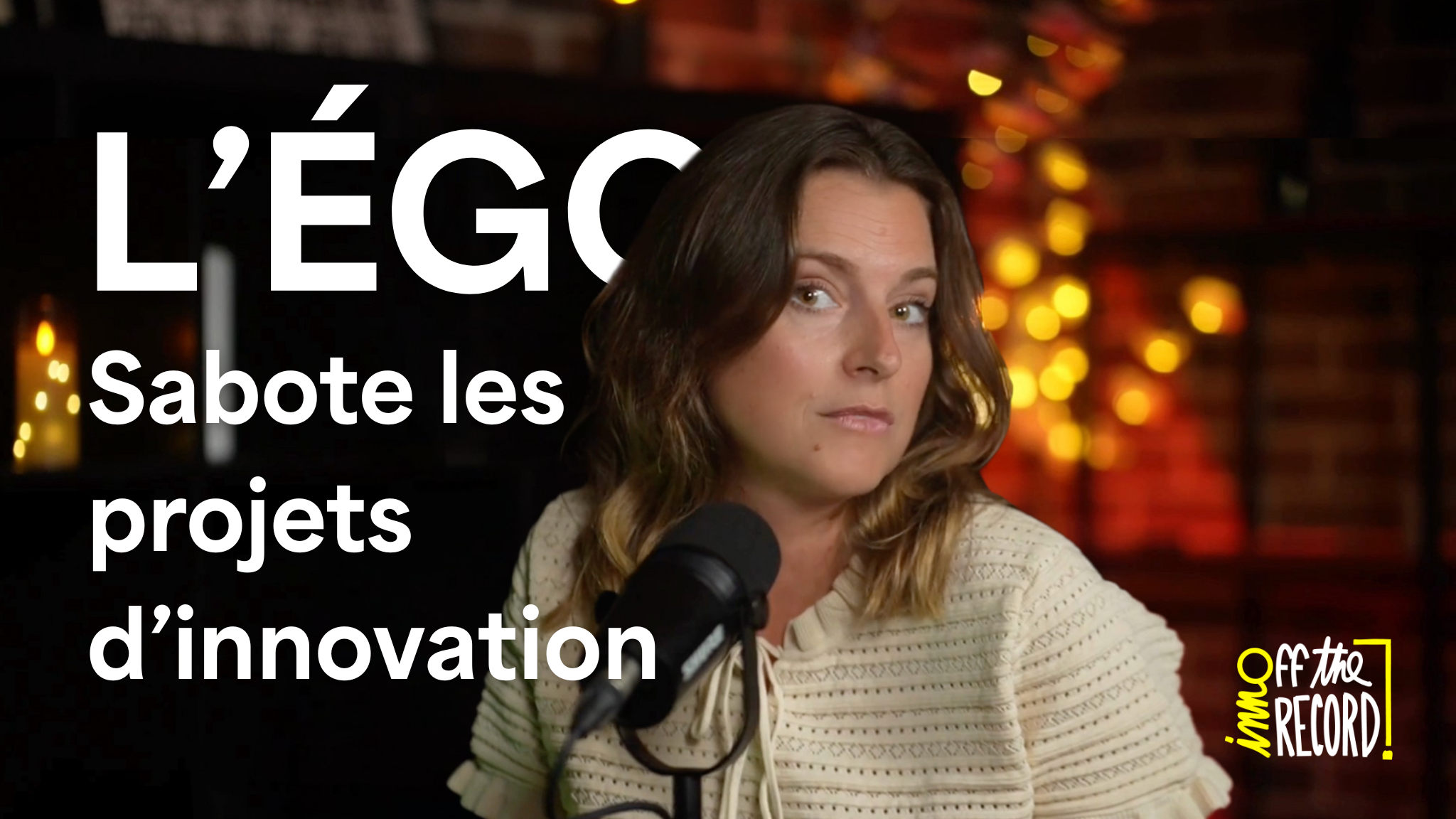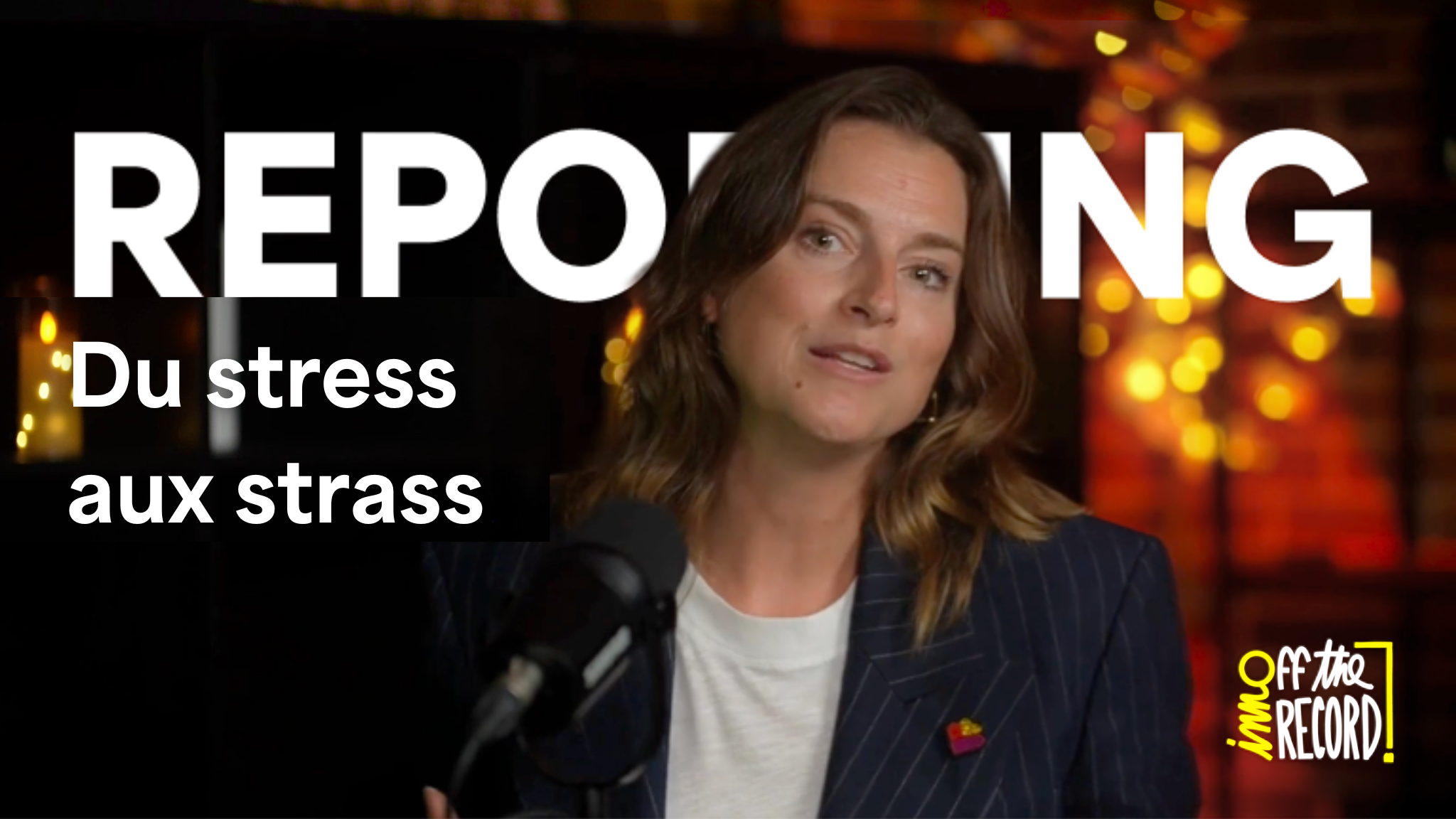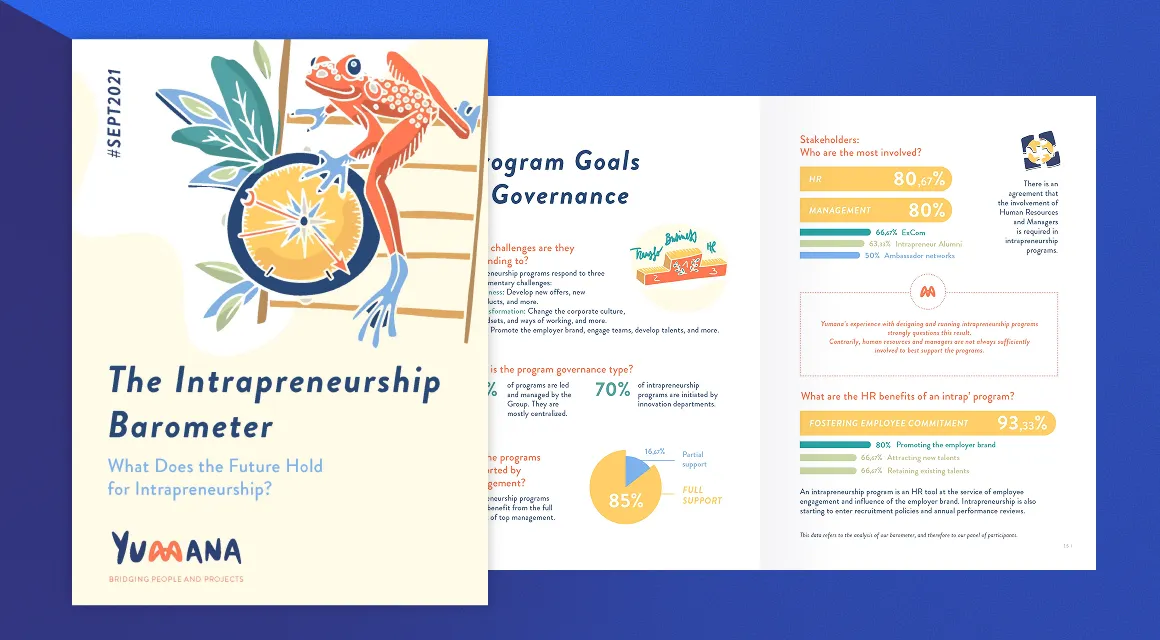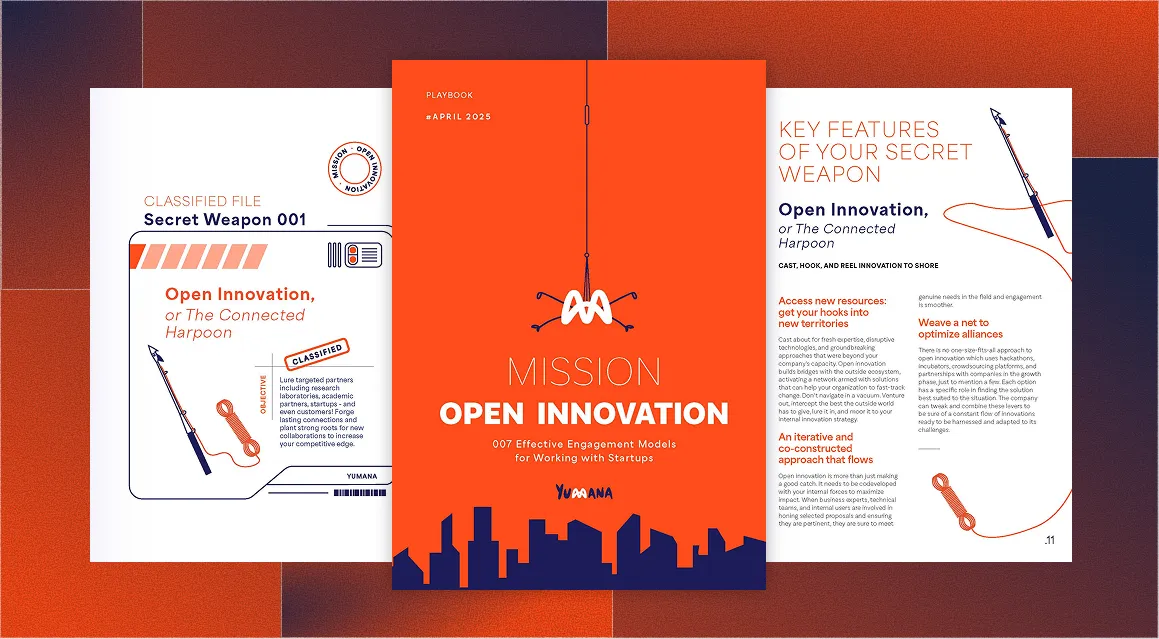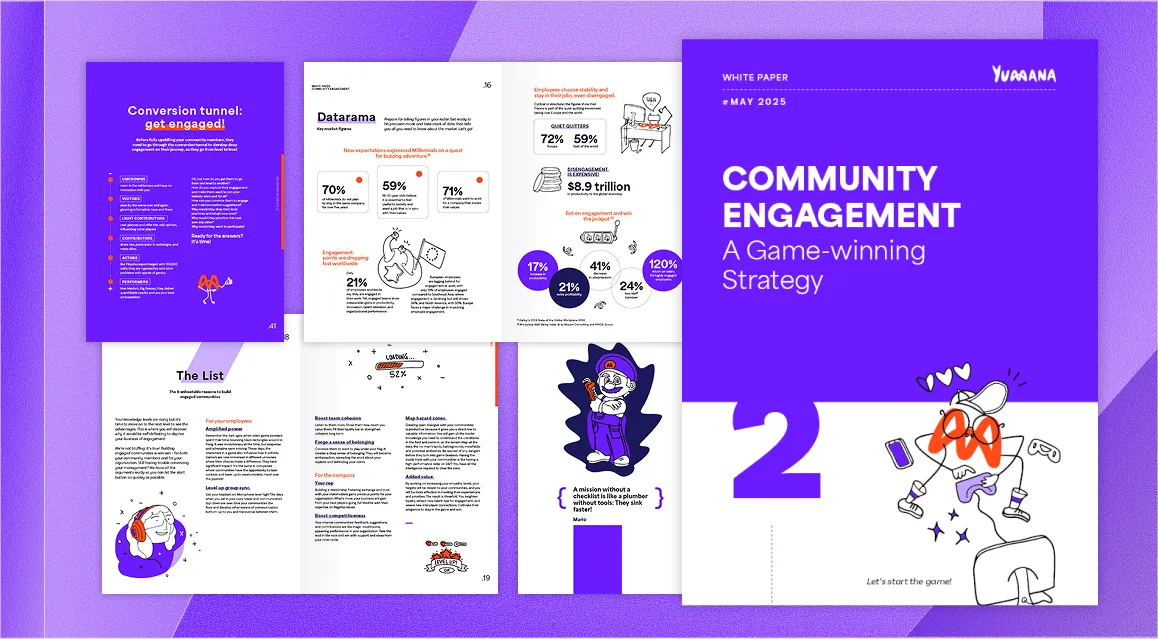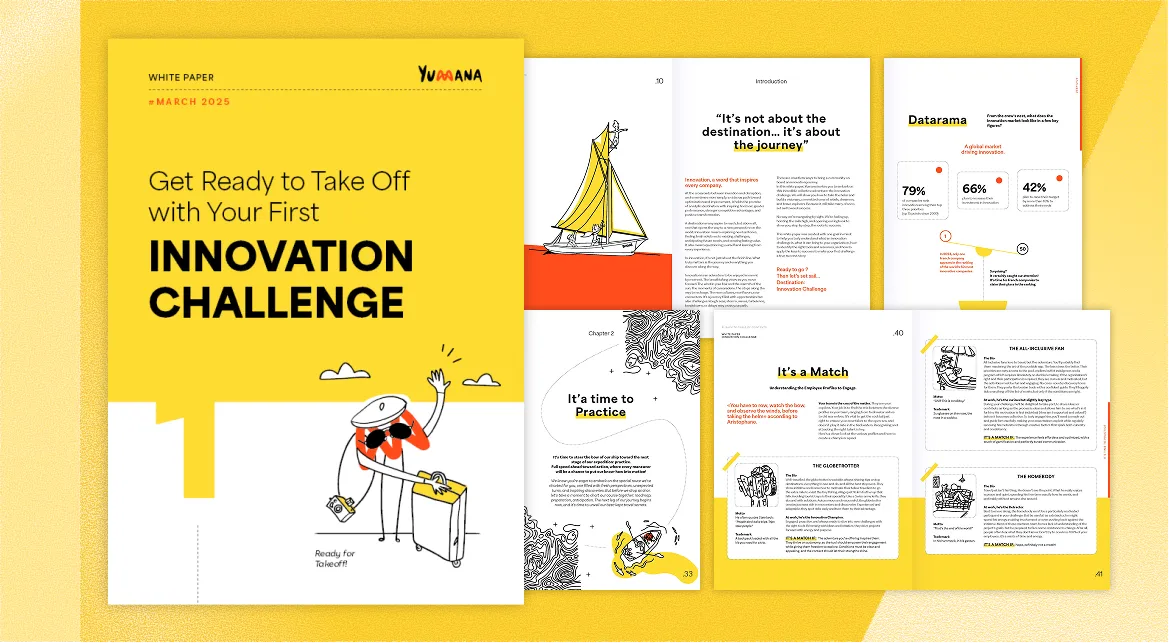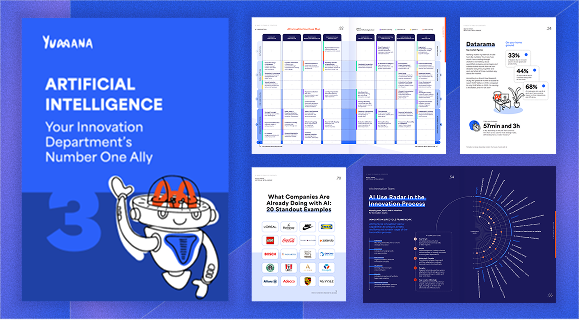Blog
4 MINS
For years, corporate innovation was told like an epic: a heroic quest for transformation, driven by ambitious programs, visionary intrapreneurs, and legendary tales of disruption and growth. Large corporations raced to build the next internal unicorn, hoping to replicate revolutions akin to Nespresso or Netflix.
But in 2025, that model is faltering. Amid economic instability, shrinking budgets, and pressure for tangible outcomes, innovation is shifting. Less speculative, more grounded. Less spectacular, more operational, practical, and efficient.
When the economy contracts, innovation changes face. Companies no longer have the luxury of investing millions in big dreams. Their objective is now simpler: stay afloat, stay competitive, and do more with less.
And this constraint can become a strength, provided we’re willing to rethink innovation itself.

When Everything Narrows, Everything Recenters
Large organizations now face a difficult equation: improve performance while using fewer resources. This pressure leads to the abandonment of strategies based on the promise of long-term “return on innovation,” in favor of approaches focused on immediate, measurable impact.
Radical disruption is no longer the end goal, not out of disinterest, but because the conditions for it are no longer there. By nature, disruption destabilizes the existing order.
Yet, large organizations are designed to minimize disruption. Their instinct is to reproduce what works—not to question their foundations. Any initiative that threatens that balance inevitably meets systemic resistance.
→ Read also: Cracking the code: Overcoming the corporate innovation paradox
A Quieter, But Still Vibrant Innovation
Innovation hasn’t disappeared. It has simply taken on a quieter form. It emerges in the everyday work of teams, through small adjustments, optimizations, and clever workarounds driven by a need to save effort or boost efficiency.
Deeply rooted in natural work dynamics, this is ground-level innovation: pragmatic and often informal. It’s neither branded, managed, nor always formalized but it exists, and it delivers results.
This type of innovation is characterized by frugality. It doesn’t require massive investment or radical transformation. It builds on what already exists, refining it, not replacing it. And most importantly, it can be replicated, if it’s recognized and shared.
Reveal, Don’t Just Ideate
In times of crisis, the challenge is not to generate new ideas, but to take stock of what’s already working. This shift in perspective fundamentally changes innovation practices.
It’s no longer about projecting into the future, but reflecting on the recent past, spotting local successes, effective tweaks, and grassroots innovations that could generate significant impact if scaled.
This approach transforms the role of innovation programs: from scouting the horizon to shining a light on what’s already here. From a fantasized future to a tangible present. Innovation becomes a matter of revelation.

Valuing What Exists, Recognizing Contributors
Some companies are formalizing this approach through internal rituals, like “Awards” for the most impactful initiatives. The goal? To spotlight concrete projects and collect the most valuable contributions from across the organization.
This shift is also changing how innovation is recognized. The era of valuing just “ideas” is giving way to an appreciation of concrete achievements. It’s no longer about intentions, it’s about execution and results.
The most effective programs highlight not only the most relevant and replicable projects, but also the people who got them done.
This repositioning also has strong HR value: when employees share a project they’ve led, they demonstrate skills that go far beyond what any job description or spreadsheet could capture. It’s not about assumed potential, but proof through action.
Organizing Collective Intelligence
This new paradigm is built on a key belief: innovation is no longer an individual act or the job of a siloed department. It becomes a matter of systems, collaboration, and networks.
But this dynamic must be actively structured. Collaboration is not spontaneous, especially in large organizations. It needs to be encouraged, facilitated, and nurtured. Creating a space isn’t enough; the right incentives, connections, and rituals must follow.
Everyday innovation becomes a strategic resource only when it is detected, shared, analyzed, and adapted across contexts. This is where effective knowledge-sharing systems come in: collaborative softwares, feedback loops, communities of practice.
Innovation That Grows With Every Iteration
Once identified, an innovation should evolve. When other teams adapt it to their own contexts, each iteration becomes a chance to enrich it further. This is corporate innovation.
The best software allow organizations to track these iterations:
- Who replicated what, and where?
- What adaptations were made?
- What results were achieved?
This tracking not only measures impact, it helps surface what could become a new organizational standard.
This vision of innovation isn’t less ambitious, it’s simply more realistic. It aligns with current constraints, taps into existing assets, and follows shorter cycles. It matches today’s operational and financial priorities.
It also better aligns innovation with broader company goals: continuous improvement, performance, sustainability, and team engagement. By putting people and their everyday efforts at the heart of the process, it restores meaning to innovation.
Most importantly, it shows that pragmatism and ambition are not opposites. In times of crisis, doing nothing is a far greater risk than doing better with what you already have.
Conclusion
Valuing best practices, capitalizing on local innovations and successes, and scaling what already creates impact. This is what distinguishes resilient companies today. In times of crisis, they don’t aim to reinvent everything, but harness their own collective intelligence.
Reconciling frugality and innovation means rejecting the false choice between ambition and efficiency. It means anchoring innovation in the real, and accepting this simple truth: innovation doesn’t always lie in what remains to be invented.
Want to build a pragmatic and sustainable innovation strategy? Yumana supports organizations in revealing, amplifying, and scaling the solutions that already work. Reach out to learn more.







